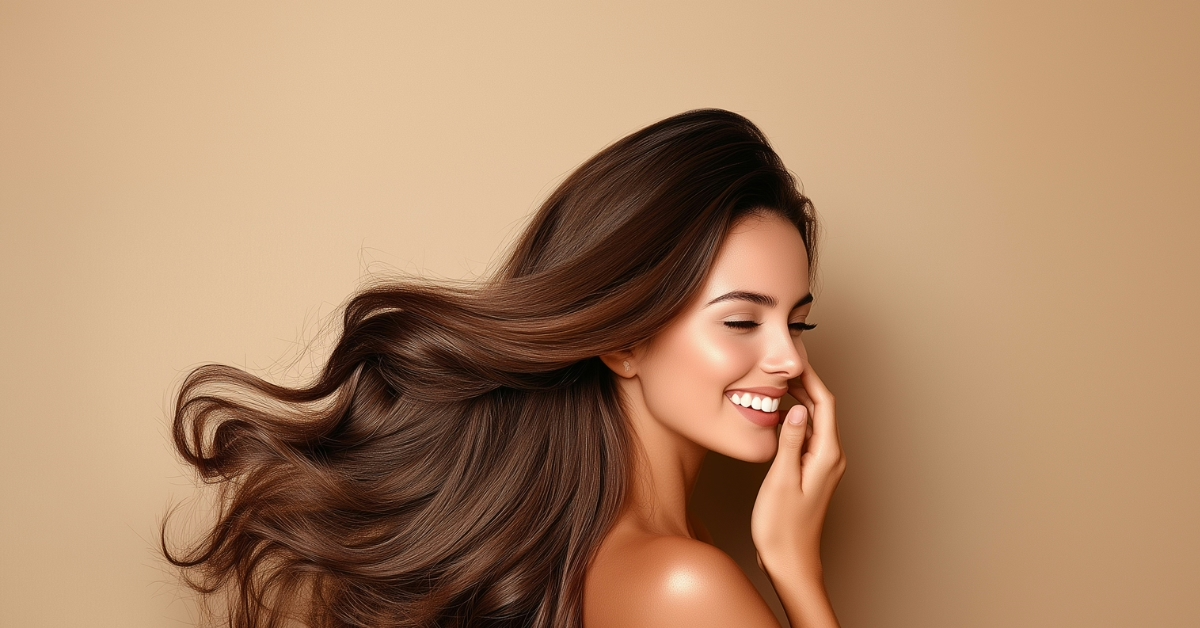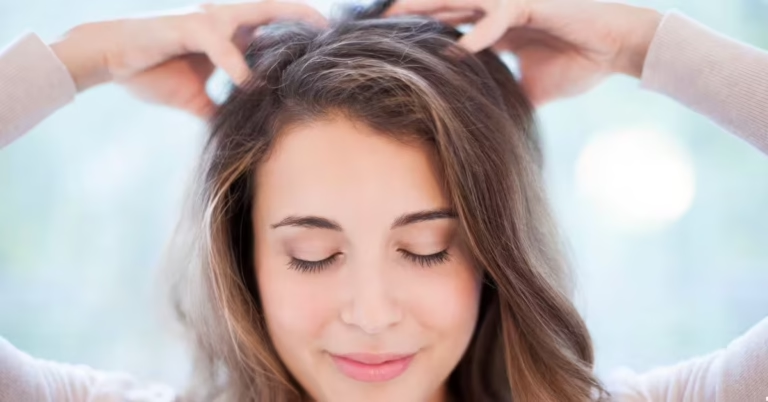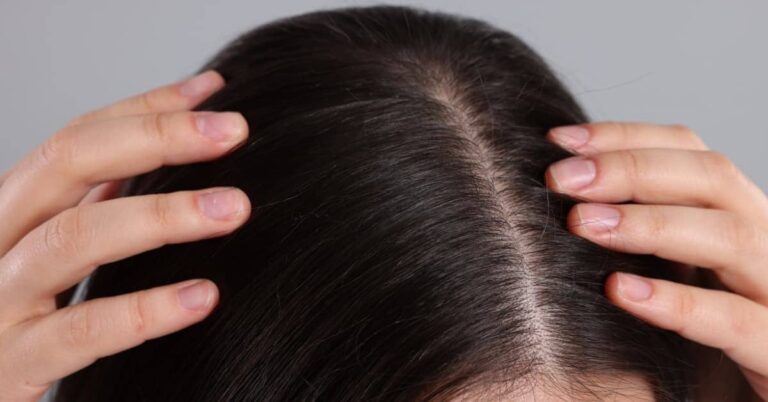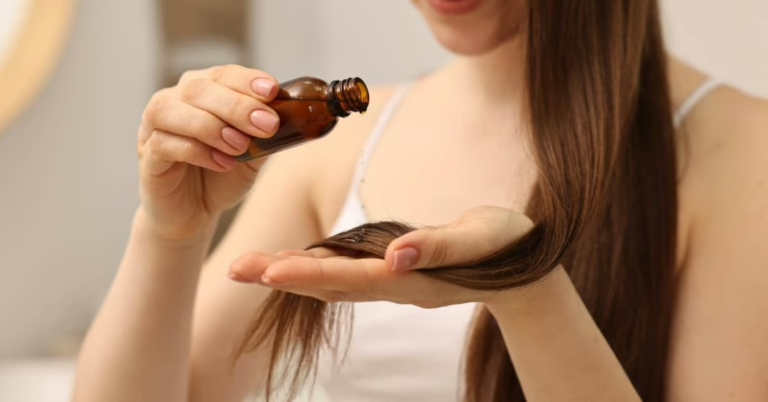Hair Fall: Holistic Fixes for Thinning & Stress
Experiencing hair fall can be distressing, impacting both your appearance and confidence. Whether your hair is oily, dry, curly, or sensitive, understanding the root causes and adopting a holistic approach can significantly improve your hair health. This guide explores natural and effective solutions to manage hair thinning and reduce stress-related hair loss, ensuring healthier and stronger hair.

Understanding Hair Fall: Causes and Challenges
Hair fall is a common concern affecting millions globally, across all genders and ages. While some shedding is normal, excessive hair loss may indicate underlying issues. Recognizing these causes is crucial for effective management.
Common Causes of Hair Fall
Hormonal Imbalances: Hormones are vital for hair growth. Conditions like thyroid disorders, polycystic ovary syndrome (PCOS), and hormonal changes during pregnancy or menopause can disrupt the hair growth cycle, leading to thinning and loss.
Stress: Chronic stress increases cortisol levels, pushing hair follicles into a resting phase and causing noticeable shedding. Stress-related hair loss typically appears months after the stressful event.
Improper Hair Care Routines: Overwashing, harsh shampoos, excessive heat styling, and chemical treatments can damage hair follicles, weakening strands and promoting breakage and loss.
Nutritional Deficiencies: Lack of essential nutrients such as iron, vitamin D, and biotin can hinder hair growth and lead to thinning. A balanced diet is essential for maintaining healthy hair.
Emotional and Physical Impact
Hair loss can negatively affect your mental well-being, leading to insecurity and decreased self-esteem. Physically, thinning hair makes the scalp more visible, altering your appearance and self-perception.

Setting the Stage for Holistic Solutions
Addressing hair fall requires a comprehensive approach that considers both internal and external factors. By adopting holistic practices, you can nurture your hair from within and create an environment that supports healthy growth and minimizes loss.
The Benefits of a Holistic Approach to Hair Care
A holistic approach goes beyond surface treatments, focusing on overall well-being and the interconnectedness of various health aspects that influence hair growth.
Addressing Internal and External Factors
Balanced Nutrition: A nutrient-rich diet provides the essential vitamins and minerals necessary for hair growth.
Stress Management: Practices like meditation, yoga, and regular exercise can lower cortisol levels, fostering a favorable environment for hair growth.
Appropriate Hair Care Practices: Gentle routines that avoid excessive heat and harsh chemicals help maintain hair and scalp health.
Importance of Natural Ingredients
Natural ingredients such as aloe vera, tea tree oil, and coconut oil are gentler on the hair and scalp, reducing the risk of irritation and long-term damage. These ingredients nourish and strengthen hair without the harsh effects of synthetic chemicals.
Long-Term Benefits
A holistic approach not only addresses immediate hair concerns but also promotes sustained hair health. Focusing on overall wellness ensures that your hair care routine supports continuous growth and resilience against future issues.

Incorporating Nutrient-Rich Foods for Stronger Hair
Nutrition plays a pivotal role in hair health. Incorporating specific vitamins and minerals into your diet can strengthen hair strands, reduce oiliness, and promote growth.
Essential Nutrients for Hair Strength
Biotin (Vitamin B7): Supports keratin production, essential for hair structure. Found in eggs, nuts, and whole grains.
Iron: Facilitates oxygen transport to hair follicles, promoting growth. Rich sources include spinach, lentils, and red meat.
Vitamin D: Aids in the creation of new hair follicles. Sun exposure, fatty fish, and fortified foods are good sources.
Omega-3 Fatty Acids: Nourish hair follicles and support scalp health. Available in fish, flaxseeds, and walnuts.
Vitamin C: Enhances iron absorption and collagen production, strengthening hair. Citrus fruits, strawberries, and bell peppers are excellent choices.
Practical Tips for Incorporation
Breakfast Boost: Start your day with a smoothie packed with spinach, berries, and flaxseeds.
Snack Smart: Choose nuts and seeds as snacks to ensure a steady intake of biotin and omega-3s.
Balanced Meals: Include a variety of colorful vegetables and lean proteins in your meals to cover a broad spectrum of essential vitamins and minerals.
Encouraging Dietary Changes
Making small, consistent changes to your diet can yield significant benefits for your hair. Gradually introduce these nutrient-rich foods into your meals to create sustainable habits that support overall hair health.

Effective Natural Remedies for Hair Fall
Natural remedies offer versatile solutions tailored to various hair types, promoting strength and reducing oiliness without harsh chemicals.
Apple Cider Vinegar Rinses
Benefits: Balances scalp pH, removes excess oil, and detangles hair.
Application: Dilute one part apple cider vinegar with two parts water. After shampooing, pour the mixture over your hair, massage gently, and rinse thoroughly. Use once a week.
Tea Tree Oil Applications
Benefits: Antimicrobial properties, reduces scalp inflammation, and unclogs hair follicles.
Application: Mix a few drops of tea tree oil with a carrier oil like coconut or jojoba oil. Massage into the scalp and leave for 15-20 minutes before washing out. Apply twice a week.
Aloe Vera Masks
Benefits: Hydrates the scalp, strengthens hair follicles, and reduces dandruff.
Application: Apply fresh aloe vera gel directly to the scalp and hair. Leave it on for 30 minutes before rinsing with lukewarm water. Use twice a week.
Coconut Oil Treatments
Benefits: Nourishes hair, reduces protein loss, and enhances shine.
Application: Warm coconut oil and massage it into your scalp and hair. Leave it on overnight for maximum benefits, then wash it out the next morning. Perform once a week.
Benefits Across Hair Types
These natural remedies are versatile, benefiting oily, dry, curly, and sensitive hair types. By strengthening hair follicles and promoting overall scalp health, these treatments effectively support various hair needs.
Customizing Remedies
Adjust the frequency and concentration of these remedies based on your hair type and specific concerns. For example, those with sensitive scalps might use more diluted solutions, while individuals with thicker hair may apply slightly more product.

Managing Stress to Prevent Hair Thinning
Stress significantly contributes to hair loss, affecting both the quality and quantity of your hair. Managing stress effectively is crucial for maintaining healthy hair.
The Connection Between Stress and Hair Loss
Under stress, the body prioritizes essential functions over hair growth, causing hair follicles to enter a resting phase. Prolonged stress can lead to telogen effluvium, where many hair follicles prematurely enter the shedding phase.
Holistic Stress Management Techniques
Yoga: Combines physical postures, breathing exercises, and meditation to reduce stress.
Meditation: Practices like mindfulness meditation calm the mind, lower cortisol levels, and promote relaxation.
Regular Exercise: Physical activity releases endorphins, natural stress relievers that enhance mental health.
Adequate Sleep: Ensuring 7-8 hours of quality sleep each night helps the body recover and manage stress effectively.
Hobbies and Leisure Activities: Engaging in enjoyable activities provides a mental break and reduces stress.
Benefits of Reducing Stress for Hair Health
Managing stress not only improves mental health but also creates a favorable environment for hair growth. Lower stress levels prevent hair follicles from entering the resting phase prematurely, reducing overall hair loss and promoting stronger, healthier hair.

Creating a Daily Routine for Stress Reduction and Hair Care
Integrating stress management with your hair care routine can lead to more effective results. Here’s a simple daily plan:
Morning Routine
Mindful Start: Begin with 5-10 minutes of meditation or deep breathing exercises.
Healthy Breakfast: Consume a nutrient-rich breakfast to support hair health.
Gentle Hair Care: Use a mild shampoo and conditioner suited to your hair type.
Afternoon Routine
Short Breaks: Take breaks to stretch or practice quick relaxation techniques.
Healthy Snacks: Choose nuts and fruits that provide essential nutrients for hair strength.
Evening Routine
Exercise: Engage in activities like yoga or walking to release endorphins and reduce stress.
Aloe Vera Treatment: Apply an aloe vera mask to your hair while unwinding.
Hydration: Drink plenty of water to keep your scalp and hair hydrated.
Night Routine
Relaxation: Wind down with a book or soothing music.
Proper Hair Care: Gently brush your hair to remove tangles and prevent breakage.
Adequate Sleep: Ensure 7-8 hours of quality sleep for body recovery and hair cell regeneration.

Addressing Common Mistakes in Oily Hair Care
Managing oily hair requires careful attention to avoid common pitfalls that can worsen the problem. Here are frequent mistakes and how to avoid them:
Overwashing Your Hair
Mistake: Washing too frequently strips the scalp of natural oils, prompting it to produce more oil.
Solution: Limit washing to 2-3 times a week to maintain the scalp’s natural oil balance.
Using Harsh Shampoos
Mistake: Shampoos with sulfates and harsh chemicals can irritate the scalp and strip essential oils, increasing oil production.
Solution: Choose gentle, sulfate-free shampoos that cleanse without over-drying. Opt for products with natural ingredients that nourish the scalp.
Neglecting Scalp Health
Mistake: Focusing only on hair strands and ignoring scalp health can lead to clogged follicles and increased oiliness.
Solution: Incorporate scalp massages and treatments to keep the scalp clean and stimulate blood flow, promoting healthier hair growth.
Skipping Conditioner or Using the Wrong Type
Mistake: Not using conditioner or using heavy conditioners can weigh down oily hair, making it appear greasier.
Solution: Use lightweight, oil-free conditioners and apply them only to the ends of your hair, avoiding the scalp area.
Excessive Use of Styling Products
Mistake: Overusing gels, mousses, and sprays can build up on the scalp, attracting more oil and causing buildup.
Solution: Use styling products sparingly and choose non-comedogenic options that won’t clog pores or weigh down your hair.
Avoiding Regular Haircuts
Mistake: Letting split ends and damaged hair accumulate makes your hair look dull and unhealthy, prompting excessive oil production.
Solution: Get regular trims to remove split ends and maintain the health and appearance of your hair.
Empathetic and Constructive Advice
Everyone makes mistakes in their hair care routine occasionally. By recognizing these common errors and implementing simple changes, you can significantly improve the health and appearance of your oily hair.
Setting Realistic Expectations for Hair Growth and Oil Control
Patience and consistency are essential when addressing hair fall and oiliness through holistic methods. Understanding the timeline and setting achievable goals can keep you motivated.
Typical Timeline for Seeing Improvements
Initial Changes (1-2 Weeks): Notice reduced oiliness and improved scalp health as your hair adjusts to new care routines.
Visible Hair Growth (3-6 Months): With consistent treatment, observe new hair growth and a decrease in hair fall. Strengthened follicles contribute to thicker, healthier hair.
Long-Term Benefits (6-12 Months): Comprehensive changes in diet, stress management, and hair care practices lead to sustained hair health, reduced oiliness, and minimized hair loss.
Encouraging Patience and Consistency
Natural remedies and holistic approaches take time to show results. Staying committed to your routine, even when progress seems slow, is key to achieving lasting improvements.
Reassurance and Motivation
Everyone’s hair responds differently to treatments based on genetics, lifestyle, and overall health. Celebrate small victories and stay positive, knowing that consistent efforts will lead to healthier, stronger hair over time.

Tailoring Solutions for Different Hair Types
Every hair type has unique needs. Tailoring your holistic hair care routine can enhance effectiveness. Here’s how to adjust your approach based on specific hair characteristics:
Fine Hair
Challenges: Prone to oiliness and lacks volume.
Solutions:
- Use lightweight oils like jojoba to avoid weighing hair down.
- Incorporate volumizing ingredients like aloe vera to add body without excess oil.
- Avoid heavy conditioners; focus on the ends.
Thick Hair
Challenges: Can become greasy quickly and may require more intensive care.
Solutions:
- Use balancing oils like tea tree oil to manage excess oil production.
- Implement deep conditioning treatments with coconut oil to maintain moisture without buildup.
- Regularly cleanse the scalp to prevent oil accumulation.
Curly Hair
Challenges: Prone to dryness and frizz, yet can also become oily at the scalp.
Solutions:
- Use hydrating yet non-greasy oils such as argan oil to nourish curls without excess oil.
- Apply aloe vera masks to maintain moisture balance.
- Avoid sulfates and harsh shampoos that can strip natural oils.
Sensitive Hair
Challenges: Easily irritated, requiring gentle care.
Solutions:
- Opt for hypoallergenic, natural shampoos free from harsh chemicals.
- Use soothing ingredients like chamomile and aloe vera to calm the scalp.
- Test new treatments on a small area first to ensure no adverse reactions.
Customizing Treatments
Adjust the frequency and concentration of treatments based on your hair type. For instance, those with fine hair might apply oils sparingly, while those with thick hair may benefit from more generous applications. Listen to your hair’s needs and modify your routine accordingly to achieve the best results.
Ensuring Inclusivity and Versatility
Holistic hair care is adaptable to all hair types, ensuring that everyone can find suitable solutions. Embrace the versatility of natural remedies to address your unique hair challenges, fostering a healthy and vibrant mane.
Take the Next Step
Ready to transform your hair health? Start by incorporating one or two of these holistic remedies into your routine today. Whether it’s adding nutrient-rich foods to your diet, trying a natural hair mask, or dedicating time to stress management practices, every small step brings you closer to stronger, healthier hair. Embrace the journey with patience and consistency, and enjoy the vibrant results of a well-rounded, natural approach to hair care.







